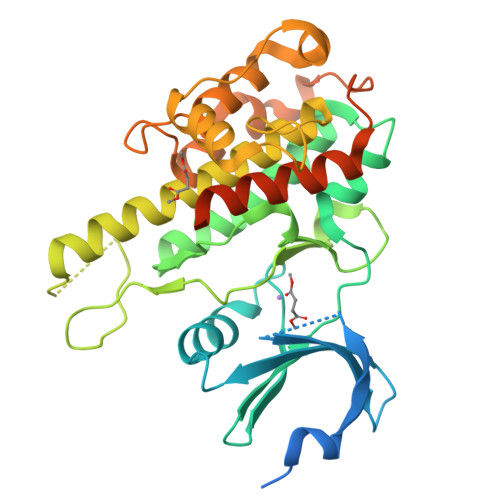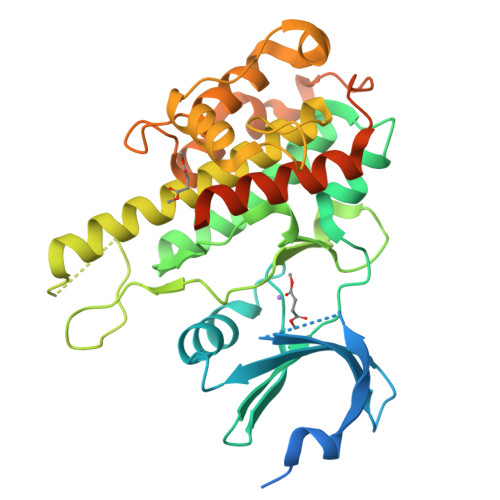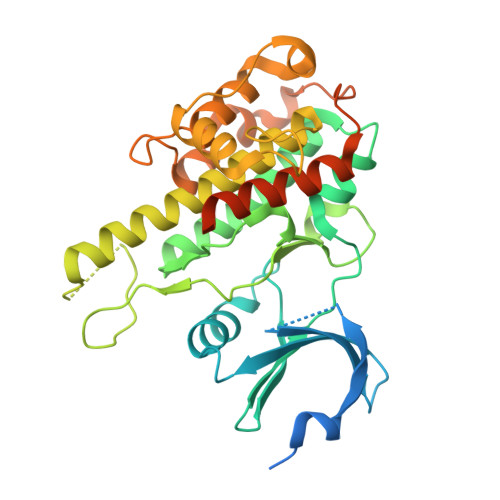Dimethyl fumarate is an allosteric covalent inhibitor of the p90 ribosomal S6 kinases.
Andersen, J.L., Gesser, B., Funder, E.D., Nielsen, C.J.F., Gotfred-Rasmussen, H., Rasmussen, M.K., Toth, R., Gothelf, K.V., Arthur, J.S.C., Iversen, L., Nissen, P.(2018) Nat Commun 9: 4344-4344
- PubMed: 30341347
- DOI: https://doi.org/10.1038/s41467-018-06787-w
- Primary Citation of Related Structures:
5O1S - PubMed Abstract:
Dimethyl fumarate (DMF) has been applied for decades in the treatment of psoriasis and now also multiple sclerosis. However, the mechanism of action has remained obscure and involves high dose over long time of this small, reactive compound implicating many potential targets. Based on a 1.9 Å resolution crystal structure of the C-terminal kinase domain of the mouse p90 Ribosomal S6 Kinase 2 (RSK2) inhibited by DMF we describe a central binding site in RSKs and the closely related Mitogen and Stress-activated Kinases (MSKs). DMF reacts covalently as a Michael acceptor to a conserved cysteine residue in the αF-helix of RSK/MSKs. Binding of DMF prevents the activation loop of the kinase from engaging substrate, and stabilizes an auto-inhibitory αL-helix, thus pointing to an effective, allosteric mechanism of kinase inhibition. The biochemical and cell biological characteristics of DMF inhibition of RSK/MSKs are consistent with the clinical protocols of DMF treatment.
Organizational Affiliation:
Danish Research Institute of Translational Neuroscience - DANDRITE, Nordic-EMBL Partnership for Molecular Medicine, Department of Molecular Biology and Genetics, Aarhus University, Gustav Wieds Vej 10C, DK-8000, Aarhus C, Denmark.


















